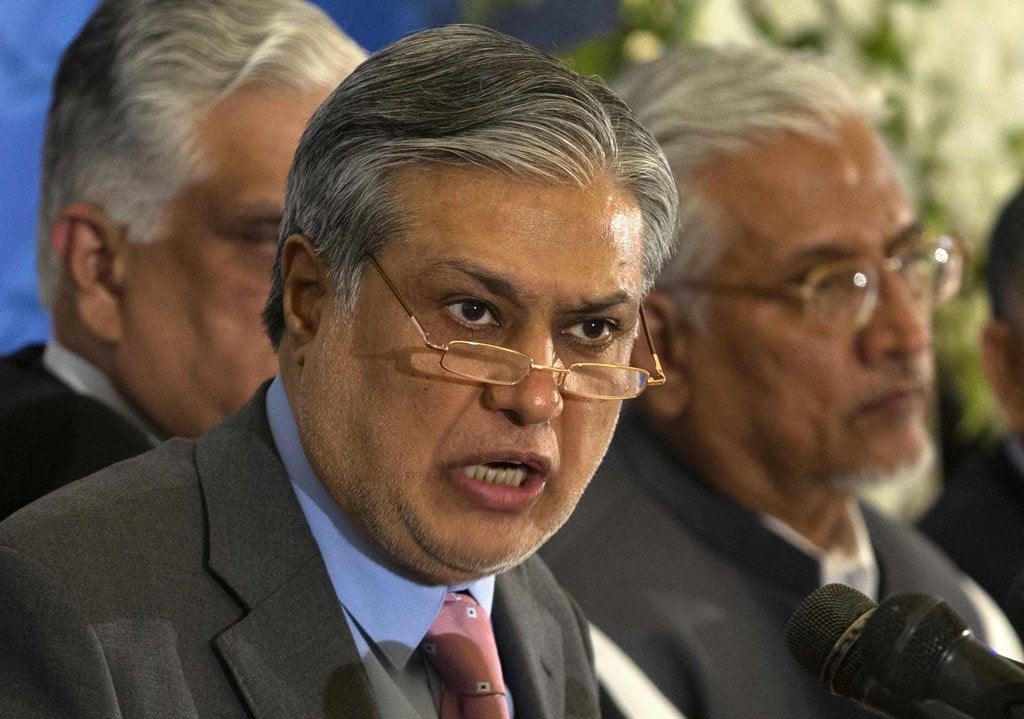Deputy Prime Minister and Minister of Foreign Affairs, Senator Ishaq Dar, said that Pakistan had never planned to use nuclear weapons while recently defending the attack by neighboring India, describing Islamabad military strikes as “measured” and “strictly in self-defense”.
In his first interview since a cease-fire stopped on Saturday, said FM Dar Cnn That the situation had become dangerously volatile after the cross -border air strikes of India on May 7, but denied that Islamabad has already planned a nuclear response.
“We were very sure that our conventional capacity and capacities are strong enough for us to beat them both in air and on the ground,” said the Minister of Foreign Affairs.
The recent exchange of strikes has marked the worst military confrontation between the two nuclear arms neighbors since the 1971 war. Dozens of people were reported on both sides, while the infrastructure was strongly damaged in the disputed border regions.
The FM DAR qualified India’s actions “attempted vows to establish its hegemony” in cashmere. He said that Pakistan had “no choice” to respond to what he called an act of assault not caused.
Despite several days of intense fighting, the two parties agreed on a truce on Saturday after American diplomatic efforts. The ceasefire, negotiated by Secretary of State Marco Rubio and Vice-President JD VANCE, entered into force in the midst of reports of final bombing in the cashmere.
The Minister of Foreign Affairs also said that there was no direct contact between Indian and Pakistani officials during talks. Instead, communication was facilitated by Washington.
Prime Minister Narendra Modi said earlier on Monday that New Delhi had “interrupted” his offensive and warned of new reprisals if she was provoked.
FM DAR, however, rejected the suggestion that Pakistan had sought to defuse weakness. “They had seen what had happened in the sky. They could see how serious the damage was,” he said.
He also reaffirmed the position of Pakistan according to which the deep cause of the conflict lies in cashmere – a disputed territory claimed in whole by India and Pakistan but administered in parts. The region sparked three wars since countries obtained independence in 1947.
“Kashmir is the deep cause of this regional instability,” said FM Dar. “His future must be decided by self -determination.”
India criticizes Pakistan for having supported militant groups operating in the Kashmir of Indian illegal occupation – an accusation of Islamabad NIE. India air strikes followed the murder of tourists in cashmere in April, which accuses Pakistan of sponsoring the group. FM Dar condemned the murders and reiterated Pakistan’s position against terrorism “in all its forms and demonstrations”.
The Minister of Foreign Affairs also expressed his concerns about the dispute on the water linked to the cashmere rivers. He warned that New Delhi’s reported decision to block the Chenab river flows could be considered “an act of war” if it was not reversed.
The Indian media reported last week that the government had reduced the water flow from the Baglihar dam, which has an impact on Pakistan’s water supply.
The Minister of Foreign Affairs said that the question was to be resolved during the upcoming talks. “The ceasefire can only hold if such provocations are avoided,” he said.
Despite the tensions, FM Dar expressed his hope for peace. “We are impatient to build a future that gives dignity to both parties,” he said. “We always hope that the meaning will prevail.”
The ceasefire in India-Pakistan follows climbing, but a fragile calm persists
A complete and immediate ceasefire between India and Pakistan was announced on May 10 after days of increased military exchanges that brought nuclear neighbors to the edge of the war.
The announcement was made for the first time by US President Donald Trump and later confirmed by Pakistani Prime Minister Shehbaz Sharif, Vice-Prime Minister Ishaq Dar, Indian Foreign Affairs Minister S. Jaishankar and US Secretary of State Marco Rubio.
The tensions broke out after an attack on April 22 in Pahalgam, the Indian illegally occupied Jammu-et-Cachemire (Iiojk), which made 26 dead civilians.
India blamed the elements based in Pakistan without presenting any evidence, Islamabad rejected the allegations. In response, India has closed the Wagah border, revoked visas and suspended the Water Treaty of the Indus – Move Pakistan called “Act of War”.
The conflict has intensified with the allocation of missiles from India and drone incursions when it launched its Sindoor operation.
The Pakistan army launched the Bunyan-Un-Marso Operation in retaliation, and announced that it had shot down five Indian planes, including Rafales-and intercepted 77 Harop Israeli manufacturing drones.
After a diplomatic intervention led by Washington, the two parties agreed to stop military activity through land, air and sea. However, hours after the break, fresh skirmishes were reported on both sides of the control line.
Explosions were heard in Srinagar and shooting exchanges were cited by officials on both sides, which raises concerns about the sustainability of the ceasefire.
Pakistan’s Foreign Office reiterated its commitment to the ceasefire while accusing India of violations.
DG ISPR LT Gen Ahmed Sharif Chaudhry stressed that Pakistan had not asked for the truce, saying that India had initiated the ceasefire request after the pakistan reprisal strikes. He described the war between two nuclear powers as “inconceivable” and “an absurdity”.
Chaudhry confirmed that no Indian pilot was in police custody, rejecting viral allegations as disinformation.
He called the Bunyan-Un-Marsoos operation unified national response to Indian assault, noting that Pakistan had given its commitments to respond decisively and proportionate.
The cities of Pakistan observed that you observed you on Sunday Youm-E-Tashakkur (day of thanks) to mark what was praised at the national level as a successful defense of national sovereignty.




